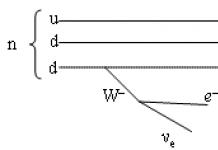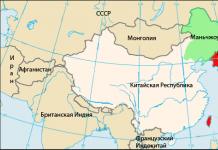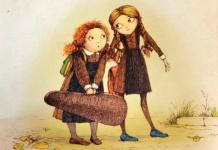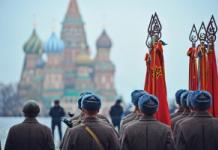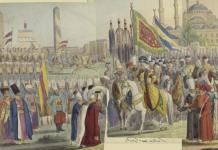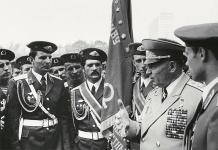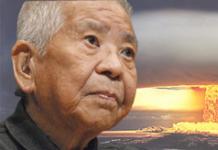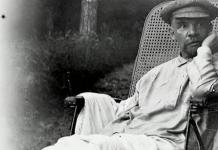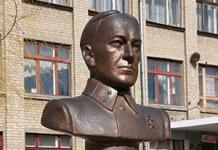Tula State Pedagogical University. Leo Tolstoy
Department of English
abstract
England during the reign of George V
Completed: student 1aA
Namestnikova E.I.
Checked by: Associate Professor of the Department of English
Zykova L.V.
Tula-2002
GEORG V
George V (1865-1936), King of Great Britain. Born June 3, 1865 at Marlborough House (London), the second son of the Prince and Princess of Wales (later Edward VII and Queen Alexandra), was baptized George Friedrich Ernst Albert. Not expecting to be able to take the throne, he received a naval education and served in the navy. In 1892, the untimely death of his elder brother, the Duke of Clarence, made him heir to the throne. Queen Victoria named him the Duke of York. In July 1893, he married Princess Victoria Mary of Teck, who had previously been engaged to his older brother. As heir to the throne, George received the Duchy of Cornwall, and on November 9, 1901, became Prince of Wales - after the coronation of his father Edward VII. After Edward's death on May 6, 1910, George was proclaimed the new king and was crowned on June 22, 1911 at Westminster Abbey. George V's reign began during a constitutional crisis in the House of Lords, which refused to approve a bill of Parliament restricting its powers to veto bills of the House of Commons. To resolve the crisis, George V promised additional support to the Liberal government, but after the victory of the Liberal Party in the 1910 elections, the bill was approved without additional measures. In 1911, George V visited India. This was the only British monarch to take such a step in the entire history of British rule over India. In 1914 it broke out. The first World War... The king visited over 450 military units and over 300 hospitals with wounded soldiers. In 1917, due to anti-German sentiments, he changed the name of the royal house from Saxe-Coburg-Gotha to Windsor, renouncing all personal and family Germanic titles.
Throughout the 19th century, the nation's desire for independence intensified in Ireland. But in the north of the country, the independence movement met with resistance from trade unions and the Conservative Party. In 1916, Easter in Dublin escalated into a civil war that ended with the proclamation of the Irish Free State (later the Republic of Ireland) in 1922 (see article by Patrick Pearce). At the same time, the six northern counties remained part of the UK. In 1923-1929, due to the economic crisis in Great Britain, there were frequent cabinet changes. The lack of a clear majority in 1924 among the three rival parties forced the king to replace Baldwin's Conservative prime minister with Labor MacDonald.
George V played an important conciliatory role in this and other situations, such as the General Strike of 1926. During the strike of miners and the general strike of 1926, the king used every opportunity to reconcile the parties. George V readily accepted the first Labor government, appointed in 1924. After the World Economic Depression of 1929, the king convinced the union leader to lead a coalition
a national government made up of all parties that won the 1931 elections. George V was directly involved in the creation of the Westminster Act of 1931, according to which the parliaments of the British dominions could make their own laws independently of Great Britain. This increased the importance of the monarchy, as the dominions, no longer subject to the British parliament, were now bound by a common oath of allegiance to the crown. George V began the tradition of the annual Christmas Radio Show for sovereign territories (now to the Commonwealth of Nations), which was first aired in 1932. George V died at Sandringham on January 20, 1936.
Germany and Britain, 1905-1919.
The growth of the economic and military potential of the German Empire became the main threat to the prosperity and security of Britain. Relations with Germany came to the fore in British politics between 1905 and the outbreak of World War I. In fact, it was the German threat that forced the British government in 1904 to decisively abandon the traditional policy of maintaining the balance of power. By 1907, France, Japan, Russia, and Britain had entered into a potential alliance of sorts. In foreign policy, energetic and generally successful steps were taken to ease tensions and divisions between countries. Long-standing disagreements with the United States were resolved. In 1906 and 1907, the Transvaal and the Orange Free State, which had recently been at war with Britain, received responsible governments, and in 1910 the four self-governing colonies of South Africa were united and received dominion status, like Canada in 1867 and Australia, which became part of the British Commonwealth in 1901. The Liberal government of Asquith (1908-1916) was inclined to introduce Home Rule in Ireland, but opposition in the House of Lords temporarily delayed the adoption of the relevant act.
Social reforms in the United Kingdom were also driven to some extent by the threat posed by Germany. The British population had to be kept on the alert and resentment not allowed. In 1908-1911, steps were taken in the direction of the so-called. Welfare states. These first attempts were partial and admittedly inadequate, but nevertheless the costs of their implementation, together with funds for rearmament, required a significant increase in taxes. Lloyd George, secretary of the Treasury in the Asquith government, has proposed shifting the tax burden onto the large landowners. The House of Lords refused to approve this proposal too. As a result, the same thing happened as in 1832. The government obtained the consent of George V to appoint new peers if necessary. The House of Lords again had to make the inevitable decision, and in 1910 the necessary law on parliament was passed. As a result, in 1911 the budget submitted by Lloyd George was legislated. In addition, Home Rule for Ireland and the Church of England in Wales Act were passed in 1914. The implementation of these acts, however, was postponed due to the outbreak of world war.
The United Kingdom spent enormous sums in the First World War. National debt rose from £ 651 million in the financial year 1914–1915 to more than £ 7.8 billion in 1919–1920. Expenditures continued after the end of the war. The interest on the debt and the need to pay pensions have put a heavy burden on the country. The number of killed and missing was approximately 680 thousand people, and the number of mobilized - 5.7 million. The war covered the entire globe and was fought on land, at sea and in the air. The greatest threat to the United Kingdom was the German submarine blockade, which resulted in Britain losing 7.6 million tonnes of merchant ships. Free trade, which relied on food imports, made the British population particularly vulnerable. In 1916, the dynamic Lloyd George succeeded Asquith as head of the coalition government. In the same year, a law on universal military service was adopted. The Easter Rising in Ireland in 1916 posed a threat to Britain in its own rear. The most difficult time came at the beginning of 1917. Russia withdrew from the war, and Germany launched military operations at sea. British military forces suffered a crushing defeat in Mesopotamia. When the United States entered the war in April 1917, it remained unclear whether they would be able to form their armed forces in time and transfer them to the arena of hostilities. In 1917, Lloyd George achieved the formation of an imperial war cabinet, which included the prime ministers of the dominions and a representative of India. In 1918 the situation improved despite the fact that Germany, during the March offensive, made a desperate attempt to break through to the English Channel. In 1918, the United Kingdom was even able to pass an ambitious education law, as well as a new electoral law granting suffrage to women over the age of 30. From the outset of the war, the question arose as to how much the United Kingdom could rely on for the support of the dominions and colonies. However, apart from serious opposition to the war in southern Ireland and the failed attempt by a small group in South Africa to join German forces in South West Africa, the war did not entail the withdrawal of the Commonwealth states, which not only provided the United Kingdom with operational military bases, but also supported him with military personnel, money and provisions.
The period between the two wars, 1919-1939
From an economic point of view, the most pressing problem of the post-war era was the transition from a war economy to a peacetime economy. This process proved to be more difficult and time-consuming than expected, and was still ongoing during the Great Depression. Before the depression was over, preparations for a new war were on the agenda. From a political point of view, the agenda was the question of improving the social status of the population, relations with Ireland, relations within the Commonwealth in general, the management of new mandated territories and, finally, finding the necessary balance between relations with the United States and relations with continental Europe.
Demobilization was carried out quickly and efficiently, but placing large numbers of men in the peaceful sector of the economy proved difficult. The situation in the coal industry became more complicated, when the wider use of oil reduced the need for coal. In 1925, the government allocated subsidies to the industry, but the next year it stopped helping. Then a strike of 1.2 million miners began, which quickly grew into a general strike, which threatened to paralyze the economy. George V even considered himself obliged to take an extraordinary step, addressing the population of the country with a warning about the danger of violence. The miners were eventually forced to return to their jobs without a pay rise.
To use the preview of presentations, create yourself a Google account (account) and log into it: https://accounts.google.com
Slide captions:
England in the second half of the 17th century
Plan. 1. Period of the Cromwellian Republic. 2. The Cromwell Protectorate and the restoration of the Stuarts. 3. "Glorious revolution" and its results.
Period of the Cromwellian Republic
After the revolution, the situation of the common people did not improve. The confiscated lands of the king, his supporters and his bishops were sold in large plots. Only 9% of these lands fell into the hands of wealthy peasants, the rest were bought up by the urban bourgeoisie and the new nobility. The peasants did not receive land and were not exempted from the quitrent.
The civil war led to a decline in economic life in the country: economic ties between the counties were interrupted, this was especially hard on London, the center of industry and trade. Difficulties in the sale of cloth led to massive unemployment. Therefore, part of the population was not happy with the reforms of the parliament. Protest movements unfolded in the country.
The Diggers, led by Gerard Whistenly, encouraged the poor to occupy the wasteland and farm freely, on the principle that everyone has a right to land. How do you think the levellers and diggers substantiated their views? (They assumed that God created people equal and that property and legal differences must be overcome.)?
Everywhere diggers were dispersed, arrested, severely beaten; destroyed their crops, destroyed huts, mutilated livestock. Why do you think? In these peaceful toilers, the possessing classes saw the most dangerous enemies of bourgeois property. ?
Having suppressed the movement of the Diggers in England, Cromwell went in August 1649 at the head of the army to suppress the Irish uprising, and in essence for the new conquest of the "Green Isle". Of the 1.5 million population in Ireland, a little more than half remained. The ensuing massive confiscation of the lands of the rebels handed over 2/3 of the Irish territory to the hands of the British owners.
In Scotland, on February 5, 1649, the son of Charles I was proclaimed king Charles II. Cromwell with his army went there and by September 1651 the Scottish army was completely destroyed, the king fled and soon crossed over to the continent.
Cromwell understood that the army was the main pillar of power. Therefore, the whole country kept heavy taxes in order to maintain a standing army, the number of which in the 50s had already reached 60 thousand people.
England was ruined by crop failures, falling production, reduced trade, unemployment. The new owners of the land infringed upon the rights of the peasants. The country was in need of legal reform and the adoption of a constitution.
Cromwell Protectorate and Stuart Restoration
A conflict was brewing between Cromwell and Parliament. In 1653. Cromwell broke up the Long Parliament and established a personal dictatorship, assuming the title of Lord Protector for life. The country adopted a new constitution - "Instrument of government", according to it, Cromwell received supreme life-long power. The Protector commanded the armed forces, was in charge of foreign policy, had the right of veto, etc. The Protectorate was essentially a military dictatorship. The Protectorate is a form of government. when the republic was headed by a life-long Lord Protector.
The country was divided into 11 districts, each of which was headed by a major general subordinate to Cromwell. The Lord Protector forbade folk festivals, theatrical performances, and work on Sundays. - Why do you think? (Oliver Cromwell was a staunch Puritan, and in his opinion, various amusements were contrary to Christian principles.)?
Cromwell died on September 3, 1658, and power passed to his son Richard, but in May 1659, Richard leaves office. The British political elite did not want a new dictator. Why do you think? (The military dictatorship was not the goal of the English Revolution. In addition, the Cromwell regime did not have serious support in society: it was reprimanded by royalists, and Catholics, and moderate Puritans. The Lord Protector relied exclusively on the army.)?
In 1660, a bicameral parliament was again convened, mainly of Presbyterians. The rich were afraid of a "new turmoil", they needed legal power. In this environment, a conspiracy in favor of the "legitimate dynasty" of the Stuarts has matured more and more.
General Monk entered into direct negotiations with the son of the executed king - emigrant king Charles II about the conditions for the restoration (restoration) of the monarchy. On April 25, 1660, the new parliament approved the return of the Stuarts; a month later, Charles II solemnly entered London. General Monk Karl II
England during the Stuart restoration
Charles became king under certain conditions. He confirmed the rights won by the new nobility and the bourgeoisie. He was stripped of his royal lands, but was assigned an annual maintenance. The king had no right to create a standing army. Do you think his power was absolute? But he rarely convened parliament, patronized Catholics, re-established the office of bishop, and persecution of active participants in the revolution began. Charles II?
The Whigs were a party to which the bourgeoisie and gentry belonged, who defended the rights of parliament and advocated reforms. The Tories are a party to which large landlords and clergy belonged, who championed the preservation of traditions. In the 70s. two political parties began to form.
"Glorious revolution" and its results
After the death of Charles II, his brother Jacob II took the throne. He did everything to reduce the role of parliament and establish Catholicism. This angered the British public. In 1688. the Glorious Revolution took place, as a result of which James II was dethroned, and the ruler of Holland, William III of Orange, and his wife Maria Stuart, daughter of Jacob II, were proclaimed king and queen. Jacob II
At the same time, Wilhelm and Maria accepted the crown on special conditions. They recognized the Bill of Rights, which delineated the powers of the king and parliament. Also, the Bill of Rights guaranteed freedom of religion in the kingdom. The "Bill of Rights" (bill - bill) finally laid the foundation for a new form of statehood - a constitutional monarchy. William III of Orange
The approval of the principle "the king reigns, but does not rule" meant that all the most important issues would be decided in the parliament, consisting of representatives of the bourgeois parties. The party that wins the majority of seats in the House of Commons forms a government headed by the Prime Minister.
The form of government in England is a parliamentary monarchy Legislative branch Executive branch Parliament House of Lords House of Commons King Government Prime Minister Elections on the basis of property qualifications What is the name of this form of government that developed in England after the revolution?
After the death of William III and his wife, the throne passed to the daughter of James II, Anna Stuart (1702-1714). During her reign in 1707, a union was concluded between England and Scotland. The Parliament of Scotland was dissolved, and representatives of this region sat from that moment in the English Parliament. Anna Stewart (1702-1714)
The main stages of the bourgeois revolution in England.
Questions for consolidation: 1. Why did the new owners go for the restoration of the Stuarts? 2. What made the final removal of the Stuarts from power necessary? What did they interfere with and what did their rule threaten? 3. What was the difference between the events of 1688-1689? from the events of 1642-1649. ? Why are they called the "glorious revolution"? 4. What is the essence of the regime of the parliamentary monarchy? What form of government exists in England today? 5. What is the reason for the longevity of the two-party system? ?
Below are the reasons for the revolution in England. Please enter an incorrect answer. Parliamentary dissatisfaction with the Stuarts' desire to rule alone. Dissatisfaction of parliament with the economic policy of the Stuarts. Embezzlement and bribery at the royal court. Bible translation on English language and conducting divine services in this language.
Mark "yes" or "no" if you agree with these judgments: 1 2 3 4 5 The revolution in England destroyed absolutism. The English Revolution established a parliamentary monarchy in the country. After the revolution, capitalism began to develop in the country. The English parliament became unicameral. Catholicism became the state religion in the country. yes yes yes no no
Glossary of terms and dates: 1688 - coup d'etat in England, overthrow of the Stuart dynasty. 1689 - The Bill of Rights is adopted - the beginning of the parliamentary monarchy in England. RESTORATION - restoration. PROTECTOR - patron, guardian.
Homework: Prepare for the 17th Century English Revolution test.
For many people, Great Britain and England are consonant concepts, synonyms that are used to name the same state. But in fact, everything is not so simple, and there are serious differences between them, which we will talk about later in the article.
What is UK
The United Kingdom of Great Britain and Northern Ireland is the full name of an independent island nation located in the northwest of Europe and occupying the largest territory in it.
Great Britain was founded in 1801. It includes such territorial units (the so-called "historical provinces"), such as northern Scotland, the Principality of Wales, and have sufficient autonomy and their own parliaments.
England is also one of the "provinces" of Great Britain (by the way, the largest in the country). Around it, in fact, the formation of a modern state took place from the very beginning. But, unlike other parts of the kingdom, it does not have its own legislative and executive powers, and their role is played by the national parliament of Great Britain.
In addition to the named territories, the United Kingdom owns three more Crown Lands - Jersey, Maine and Guernsey, as well as fourteen overseas territories, which include, for example, Gibraltar, Bermuda, Falklands, etc.

England Country Information
Despite the large number of dependent lands, England, we repeat, is the historical core of the United Kingdom, and its population is 84% of all inhabitants of Great Britain.
Here the English language was "born", and from here the formation of a powerful state began. The beginning of this was laid by the Angles and Saxons, who at the beginning of the ninth century conquered this territory, displacing the Britons who inhabited it. In 825, King Egbert of Wessex united most of the small kingdoms into one, giving him the name England (this translates as "Land of the Angles").
But when in 1707 Scotland became part of the state, and the United Kingdom was formed, it was decided to call it Great Britain, so as not to infringe on anyone's pride. After all, a name, for example, Great England (Great England) would be absolutely unacceptable for the Scots.

Some features of the government of Great Britain
That the meaning of the word "England" in our minds is closely intertwined with the meaning of the word "Great Britain", and even some explanatory dictionaries cite these names as synonymous, a cultured person should still understand what is their internal difference.
Of course, the role of England for the whole state can hardly be overestimated. After all, it is her legal, legal and constitutional innovations that have been adopted by many states of the world. And it was this part of the United Kingdom that became the cradle of the Industrial Revolution, making Britain the world's first industrialized country.
In general, the United Kingdom has a rather complex state structure, which, nevertheless, does not prevent it from being an example in maintaining democratic relations within the country.
Interestingly, there is no single constitution in the UK. It is to some extent replaced by a set of acts of a different nature, common law norms, which include many judicial precedents, and some constitutional customs. The most important of them include (signed back in 1215), as well as the Act of Succession.

Why England does not have its own parliament
Due to the fact that England is the only constituent part of Great Britain that does not have its own parliament and government, a movement has formed in the country to support its creation. After all, if decisions concerning only Scotland can be made by the Scottish legislatures, then decisions regarding England are made by Welsh, Scottish and Northern Irish deputies who are members of the national parliament.
But in response to this, representatives argue that if the largest part of the UK gets independent government, this will lead to the fact that the remaining small territories will dramatically lose their importance, and this, in turn, could lead to the collapse of the Kingdom.

Once again on the differences between England and Great Britain
We hope the article helped to finally understand how England differs from Great Britain. And in order to finally systematize the information, let us once again recall their main differences:
- Great Britain is an independent state, which includes England as an administrative unit;
- England has no foreign policy relations, and Great Britain is an indispensable member of international organizations (UN, NATO, European Union, OSCE, etc.) and “arbiter of destinies” for countries dependent on it;
- England does not have its own currency, armed forces and parliament;
- the territory of England is only a small part of the whole of Great Britain.
Chapter XIII. England at the time of Richard the First, nicknamed the Lionheart (1189 - 1199)
In 1189 AD, Richard the Lionheart inherited the throne of Henry II, whose father's heart he so mercilessly tormented and ultimately tore apart. As we know, Richard was a rebel from adolescence, but having become a monarch against whom others can rebel, he suddenly realized that rebellion is a terrible sin, and in a fit of pious indignation he punished all his main allies in the fight against his father. No other act of Richard could better expose his true nature or rather warn flatterers and hangers-on who trust princes with lion hearts.
He also chained the treasurer of his late predecessor and kept him in prison until he opened the royal treasury for him and his own wallet to boot. So Richard, whether he had a lion's heart or not, certainly grabbed for himself the lion's share of the wealth of the unfortunate treasurer.
Richard was married to the king of England at Westminster, with incredible pomp. He walked to the cathedral under a silk canopy, draped over the points of four lances, each of which was carried by an eminent lord. On the day of the coronation, a monstrous Jewish pogrom took place, which seems to have brought great joy to the mass of savages who called themselves Christians. The king issued a decree forbidding Jews (whom many hated, although they were the most efficient merchants in England) from attending the ceremony. But among the Jews who came to London from all over the country in order to bring rich gifts to the new sovereign, there were still daredevils who decided to drag their gifts to Westminster Palace, where, of course, they did not refuse them. It is believed that one of the onlookers, allegedly wounded in his Christian feelings, began to loudly resent this and hit the Jew, who was trying to slip with an offering into the gate of the palace. A fight ensued. The Jews, who had already penetrated inside, began to be pushed out, and some villain shouted that the new king had ordered to exterminate the tribe of infidels. The crowd rushed into the narrow streets of the city and began to kill all the Jews in its path. Not finding them anymore on the streets (since they hid in their houses and locked themselves there), the brutal rabble rushed to smash Jewish dwellings: knock down doors, rob, stab and cut the owners, and sometimes even throw old people and babies out of the windows into the fires made below. This terrible atrocity lasted twenty-four hours, and only three people were punished. And they paid with their lives not for beating and robbing Jews, but for burning down the houses of some Christians.
King Richard - a strong man, a fidget, a big man, with a single, very restless, thought in his head: how to take off as many other people's heads as possible - was obsessed with the desire to go to the Holy Land at the head of a huge army of crusaders. But since a huge army cannot be lured even into the Holy Land without a huge bribe, he began to trade in crown lands and, even worse, in higher government positions, carelessly entrusting his English subjects not to those who were able to rule them, but to those who could pay more expensive for this privilege. In this manner, and selling pardons at a high price, and keeping the people in a black body, Richard collected a lot of money. Then he entrusted the kingdom to two bishops, and gave brother John great powers and possessions, hoping to buy his friendship. John would have preferred to be called the regent of England, but he was a cunning man and welcomed his brother's venture, probably thinking to himself: “Let him fight! In war, closer to death! And when he is killed, I will be the king! "
Before the newly recruited army left England, the recruits, along with other dregs of society, distinguished themselves with unheard-of mockery of the unfortunate Jews, whom in many large cities they killed in the hundreds in the most barbaric manner.
In one fortress in York, during the absence of the commandant, a large number of Jews took refuge. The unfortunate fled there after many Jewish women and children were killed in front of their eyes. The commandant appeared and ordered to let him in.
Mr. Commandant, we cannot fulfill your demand! - answered the Jews from the fortress walls. - If we open the gate even an inch, the roaring crowd behind you will break in here and tear us apart!
Hearing this, the commandant flared up with unrighteous anger and told the scum around him that he allowed them to interrupt the insolent women. Immediately, an angry fanatic monk in a white cassock stepped forward and led the crowd to an attack. The fortress held out for three days.
On the fourth day, the head of the Jews, Iocene (who was a rabbi, or, in our opinion, a priest) addressed his fellow tribesmen with the following words:
My brothers! There is no escape for us! Christians are about to break through the gates and walls and burst in here. Since we, our wives and our children will die inevitably, it is better to perish at our own hands than at the hands of Christians. Let's destroy the values that we brought with us with fire, then we will burn down the fortress, and then we will perish ourselves!
Some could not decide on this, but the majority agreed. The Jews threw all their wealth into a blazing fire, and when it burned down, they set fire to the fortress. While the flames buzzed and crackled all around, soaring up to the heavens, enveloped in a blood-red glow, Iocene cut the throat of his dearly beloved wife and stabbed himself. All others who had wives and children followed his empathetic example. When the thugs burst into the fortress, they found there (except for a few weak-minded poor souls huddled in the corners, who were immediately killed) only heaps of ash and charred skeletons, in which it was impossible to recognize the image of a human, created by the beneficent hand of the Creator.
Having laid such a bad start to the holy crusade, Richard and his mercenaries set off with no good in mind. The king of England undertook this campaign together with his old friend Philip of France. First of all, the monarchs inspected the troops, the number of which reached one hundred thousand people. Then they sailed separately to Messina, on the island of Sicily, where a gathering place was appointed.
Richard's daughter-in-law, Gottfried's widow, married the Sicilian king, but he soon died, and his Tancred usurped the throne, threw the queen dowager in prison and seized her possession. Richard angrily demanded that his daughter-in-law be released, that the confiscated land should be returned to her, and that she (as was the custom in the Sicilian royal house) should be clothed with a golden chair, a golden table, twenty-four silver bowls and twenty-four silver dishes. Tancred could not compete with Richard by force, and therefore agreed to everything. The French king was seized with envy, and he began to complain that the English king wanted to rule alone both in Messina and in the whole world. However, these complaints did not affect Richard in the least. For twenty thousand gold pieces, he engaged his dear little nephew Arthur, then a two-year-old toddler, to Tancred's daughter. We will talk about cute little Arthur yet.
Having settled Sicilian affairs without murder (which should have greatly disappointed him), King Richard took away his daughter-in-law, as well as a beautiful lady named Berengaria, whom he fell in love with in France and whom his mother, Queen Eleanor (who, as you remember, languished in prison, but freed by Richard on his accession to the throne), brought to Sicily to give him as a wife, and sailed to Cyprus.
Here Richard had the pleasure of fighting with the king of the island because he allowed his subjects to rob a handful of English crusaders who were shipwrecked off the coast of Cyprus. Having easily defeated this miserable sovereign, he took his only daughter as a servant to Madame Berengaria, and chained the king himself in silver chains. Then he again set out with his mother, daughter-in-law, young wife and a captive princess, and soon sailed to the city of Acre, which the French king with his fleet was besieging from the sea. Philip had a hard time, because half of his army was cut out by Saracen sabers and mowed down by the plague, and the brave Saladin, the Turkish sultan, settled in the surrounding mountains with immeasurable strength and fiercely defended himself.
Wherever the allied armies of the crusaders converged, they did not agree with each other on anything, except in the most godless drunkenness and brawliness, in insulting the people around them, be they friends or enemies, and in the ruin of peaceful villages. The French king strove to circumvent the English king, the English king strove to circumvent the French king, and the violent warriors of the two nations strove to circumvent each other. As a result, the two monarchs at first could not even agree on a joint assault on Acre. When they went to the world for such a deed, the Saracens promised to leave the city, give the Christians the Holy Cross, free all Christian captives and pay two hundred thousand gold coins. For this they were given forty days. However, the term expired, and the Saracens did not even think to give up. Then Richard ordered about three thousand Saracen prisoners to be lined up in front of his camp and hacked to death in full view of their fellow citizens.
Philip of France did not participate in this crime: he had already left home with most of his army, not wanting to endure the despotism of the English king any longer, worrying about his domestic affairs and, moreover, getting sick of the unhealthy air of a hot sandy country. Richard continued the war without him and spent almost a year and a half in the East, full of adventures. Every night, when his army halted after a long march, the heralds shouted three times, reminding the soldiers of the purpose for which they raised their weapons: "For the Holy Sepulcher!", And the soldiers, kneeling down, answered: "Amen!" And on the way and in the stops, they constantly suffered from the hot air of the blazing heat of the desert, or from the Saracens, inspired and guided by the brave Saladin, or from both at the same time. Sickness and death, battles and wounds were their lot. But Richard himself conquered everything! He fought like a giant and worked like a laborer. Long, long after he was buried in his grave, legends circulated among the Saracens about his deadly ax, on whose mighty butt was spent twenty English pounds of English steel. And centuries later, if a Saracen horse ran away from a bush by the side of the road, the rider exclaimed: “Why are you frightened, stupid? Do you think King Richard is hiding there? "
No one admired the glorious exploits of the English king more than Saladin himself, his magnanimous and valiant opponent. When Richard fell ill with a fever, Saladin sent him fresh fruit from Damascus and virgin snow from the mountain peaks. They often exchanged kind messages and compliments, after which King Richard mounted his horse and rode to destroy the Saracens, and Saladin mounted his own and rode to destroy the Christians. During the capture of Arsuf and Jaffa, King Richard fought with all his heart. And in Ascalon, not finding himself a more exciting occupation than the restoration of some fortifications destroyed by the Saracens, he nailed his ally, the Duke of Austria, because this proud man did not want to humiliate himself to hauling stones.
In Ascalon, he nailed the Duke of Austria because this proud man did not want to humiliate himself to hauling stones
Finally, the army of the crusaders approached the walls of the holy city of Jerusalem, but, completely torn apart by rivalry, disagreement and strife, soon retreated. An armistice was concluded with the Saracens for a period of three years, three months, three days and three hours. The English Christians, under the protection of the noble Saladin, who protected them from the revenge of the Saracens, went to worship the Holy Sepulcher, and then King Richard with a small detachment embarked on a ship in Acre and sailed home.
But in the Adriatic Sea, he was shipwrecked and was forced to make his way through Germany under the name. And you need to know that in Germany there were many people who fought in the Holy Land under the leadership of that very proud Duke of Austria, whom Richard slightly nailed. Some of them, easily recognizing such a remarkable person as Richard the Lionheart, reported his discovery to the nailed duke, and he immediately captured the king in a small inn near Vienna.
The suzerain of the duke, the emperor of Germany, and the king of France were both terribly delighted to learn that such a restless monarch was hidden in a safe place. Friendships based on complicity in unrighteous deeds are always unreliable, and the French king became as fierce enemy of Richard as he was a cordial friend to him in his evil schemes against his father. He came up with a monstrous tale that in the East the English king was trying to poison him; he accused Richard of murder, in the same East, a man who actually owed him his life; he paid the German emperor to keep the prisoner in a stone sack. In the end, thanks to the claims of two crowned heads, Richard was brought before a German court. He was charged with a variety of crimes, including the above. But he defended himself so ardently and eloquently that even the judges burst into tears. They pronounced the following verdict: the captive king, for the remainder of his imprisonment, should be kept in conditions more decent to his rank, and released upon payment of a substantial ransom. The English people uncomplainingly collected the required amount. When Queen Eleanor personally brought the ransom to Germany, it turned out that they did not want to take it there at all. Then, in the name of her son, she appealed to the honor of all the rulers of the German Empire, and appealed so convincingly that the ransom was accepted, and the king was released on all four sides. Philip of France immediately wrote to Prince John: “Beware! The devil is off the chain! "
Prince John had every reason to fear his brother, whom he vilely betrayed during his imprisonment. Having entered into a secret conspiracy with the French king, he announced to the English nobility and people that his brother was dead, and made an unsuccessful attempt to seize the crown. Now the prince was in France, in the city of Evreux. The meanest of men, he has come up with the meanest way to flatter his brother. Having invited the French commanders from the local garrison to dinner, John killed them all and then captured the fortress. In the hope of softening Richard's lion's heart with this heroic act, he hurried to the king and fell at his feet. Queen Eleanor fell beside him. “Okay, I forgive him,” said the king. "I hope I will just as easily forget about the offense he has inflicted on me, as, of course, he will forget about my generosity."
While King Richard was in Sicily, such a misfortune happened in his own domain: one of the bishops, whom he left in place of himself, took another into custody, and he himself began to swagger and swagger, as if a real king. Upon learning of this, Richard appointed a new regent, and Longchamp (that was the name of the arrogant bishop) slipped away in a woman's dress to France, where he was welcomed and supported by the French king. However, Richard remembered everything to Philip. Immediately after the grandiose meeting arranged for him by his enthusiastic subjects, and the second coronation at Winchester, he decided to show the French monarch what a devil who had broken loose from the chain was, and attacked him with great ferocity.
At that time, a new misfortune happened at Richard's home: the poor, dissatisfied with the fact that they were being taxed more unbearable than the rich, grumbled and found themselves an ardent defender in the person of William Fitz-Osbert, nicknamed Longbeard. He headed a secret society in which there were fifty thousand people. When they tracked him down and tried to grab him, he stabbed the man who touched him first, and, fighting bravely, got to the church, where he locked himself up and held out for four days, until he was kicked out of there by fire and pierced as he ran with a lance. But he was still alive. Half dead, he was tied to a ponytail, dragged to Smithfield and hung there. For a long time, death has been a favorite means of pacifying the people's defenders, but continuing to read this story, I think you will understand that it is not very effective either.
While the French war, briefly interrupted by a truce, continued, a noble noble named Vidomar, Viscount of Limoges, found in his lands a box full of ancient coins. As a vassal of the English king, he sent Richard half of the open treasure, but Richard demanded the whole thing. The nobleman refused to give everything entirely. Then the king laid siege to Vidomarov castle, threatening to take it by storm and hang the defenders on the fortress walls.
In those parts there was a strange old song that prophesied that an arrow would be sharpened in Limoges, from which King Richard would die. Perhaps the young Bertrand de Gourdon, one of the castle's defenders, often sang or listened to her on winter evenings. Maybe he remembered her at the moment when, through the slit of the loopholes, he saw the king below, who, together with his main commander, rode along the wall, inspecting the fortifications. Bertrand pulled the bowstring with all his might, aimed the arrow exactly at the target, said through his teeth: "God bless you, darling!", Lowered it and hit the king in the left shoulder.
Although at first the wound did not seem dangerous, it still forced the king to retire to his tent and from there lead the assault. The castle was taken, and that was all. his defenders, as well as the king, are suspended. Only Bertrand de Gourdon was left alive until the sovereign's decision.
Meanwhile, unskilful treatment made Richard's wound fatal, and the king realized that he was dying. He ordered to bring Bertrand to his tent. The youth entered with chains clinking. King Richard gave him a hard look. Bertrand looked at the king with the same firm gaze.
Scoundrel! said King Richard. - How did I harm you, that you wanted to take my life away?
How did you harm? - answered the young man. “With your own hands, you killed my osch and my two brothers. You were going to hang me. Now you can execute me with the most painful execution you can invent. I take comfort in the fact that my torment will no longer save you. You must die too, and the world will get rid of you thanks to me!
Again the king looked at the young man with a firm gaze, and again the young man looked at the king with a firm gaze. Perhaps at that moment the dying Richard remembered his magnanimous adversary Saladin, who was not even a Christian.
Youth! - he said. - I'm sweet to you. Live!
Then King Richard turned to his main general, who was by his side when the arrow overtook him, and said:
Take off his chains, give him a hundred shillings, and let him go.
Then the king fell on the pillows. Before his weakening gaze, a black fog floated, covering the tent in which he so often rested after military labors. Richard's hour has struck. He reposed forty-two years, reigning ten. His last will was not fulfilled. The chief commander hanged Bertrand de Gourdon, having previously peeled off his skin.
From the depths of centuries, one tune has come down to us (a sad melody sometimes survives many generations of strong people and turns out to be more durable than an ax with twenty-pound butts of English steel), with the help of which, they say, the place of imprisonment of the king was discovered. According to legend, the beloved minstrel of King Richard, the faithful Blondel, set off to wander in a foreign country in search of his crowned master. He walked under the gloomy walls of fortresses and prisons, singing one song, until he heard a voice echoing him from the depths of the dungeon. Recognizing him immediately, Blovedel shouted in delight: “Oh, Richard! Oh my king! " Anyone who wants to can believe this, because they believe even much worse fairy tales. Richard himself was a minstrel and a poet. If he had not been born a prince, then, you see, he would have become a good guy and would have gone to the next world without shedding so much human blood, for which you need to answer before God.
From the book The Birth of Britain the author Winston Spencer ChurchillChapter XIV. LION'S HEART The Christian Kingdom, founded in Jerusalem after the First Crusade, existed for a century, defended by the military orders of the Knights Templars and Hospitallers. The fact that it lasted so long is due to the main
author Dickens CharlesChapter X. England during the time of Henry the First, Gramotey (100 - 1135) Gramma, upon hearing of his brother's death, flew to Winchester with the same speed with which William the Red once flew there in order to take possession of the royal treasury. But the treasurer, who himself participated in the ill-fated hunt,
From the book History of England for the Young [trans. T. Berdikova and M. Tyunkina] author Dickens CharlesChapter XII. England during the time of Henry II (1154 -
From the book History of England for the Young [trans. T. Berdikova and M. Tyunkina] author Dickens CharlesChapter XIV. England in the time of John, called the Landless (1199 - 1216), John became king of England thirty-two years of age. His cute little nephew Arthur had more rights to the English throne than he did. However, John seized the treasury, slapped the nobility
From the book History of England for the Young [trans. T. Berdikova and M. Tyunkina] author Dickens CharlesChapter XVI. England at the time of Edward the First, nicknamed the Long-legged (1272 - 1307) It was 1272 from the birth of Christ, and the priest Edward, the heir to the throne, being in the distant Holy Land, knew nothing about the death of his father. However, the barons proclaimed him king immediately after
From the book History of Great Britain the author Morgan (ed.) Kenneth O.Richard 1 (1189-1199) Richard's alliance with Philip Augustus meant that Richard's position as heir to all of his father's rights and dominions was undeniable. John remained the ruler of Ireland. Brittany, after a certain time, was to pass to the son of Gottfried, Arthur (born
From the book by Richard the Lionheart author Pernu Regin From the book History of the Crusades the author Monusova EkaterinaLionheart ... The siege of the fortress had been going on for almost two years. But everything started so well! .. On May 26, 1104, five years after the announcement of the First Crusade, the rebellious city fell at the feet of the newly minted Jerusalem king Baldwin I. And, as it seemed, forever.
From the book of 100 Great Mysteries of French History the author Nikolaev Nikolay NikolaevichThe inglorious end of Richard the Lionheart Greed is a very disgusting quality of human nature, and it was not the only one in the list of the base qualities of nature inherent in Richard I of England. He would have been forgotten in France long ago, if he had not died in this country, namely in Shalyu,
From the book of Grandfather's stories. A history of Scotland from ancient times to the Battle of Flodden in 1513. [with pictures] by Scott WalterCHAPTER IV RULES OF MALCOLM CANMOR AND DAVID I - THE BATTLE UNDER THE BAND - THE SOURCES OF ENGLAND'S DOMINATION IN SCOTLAND - MALCOLM IV CALLED THE GIRL - THE ORIGIN OF THE HERALDIC FIGHTERS OF THE NORTHERN
author Esbridge ThomasLION HEART Today Richard the Lionheart is the most famous figure of the Middle Ages. He is remembered as the greatest English warrior king. But who was Richard really? A difficult question, because this man became a legend during his lifetime. Richard is definitely
From the book Crusades. Medieval Wars for the Holy Land author Esbridge ThomasChapter 16 LION'S HEART Now the English king Richard I could lead the Third Crusade and lead it to victory. The walls of Acre were rebuilt, and its Muslim garrison was ruthlessly destroyed. Richard secured the support of many of the leading crusaders, including
From the book Crusades. Medieval Wars for the Holy Land author Esbridge ThomasThe fate of Richard the Lionheart after the Third Crusade After the death of the Ayyubid Sultan, the difficulties of the English king did not diminish. Having barely escaped death when his ship was wrecked in bad weather in the Venice region, the king continued his journey to his native
From the book England. History of the country the author Daniel ChristopherRichard I the Lionheart, 1189-1199 Richard's name is surrounded by a romantic halo, he is a kind of legend in English history. From generation to generation, stories about his heroism, about the glorious deeds that Richard performed on the battlefields in Europe and in
From the book The True History of the Templars author Newman SharanChapter five. Richard the Lionheart “He was stately, tall and slender, with red rather than yellow hair, straight legs and soft hand movements. The arms were long, and this gave him an advantage over rivals in the possession of the sword. Long legs were harmoniously combined
From the book Famous Generals the author Ziolkovskaya Alina VitalievnaRichard I the Lionheart (born 1157 - died 1199) King of England and Duke of Normandy. He spent most of his life in military campaigns outside England. One of the most romantic figures of the Middle Ages. For a long time it was considered the model of the knight. An entire era in the history of the Middle Ages
The historical site of Bagheera - secrets of history, mysteries of the universe. Secrets of great empires and ancient civilizations, the fate of disappeared treasures and biographies of people who changed the world, secrets of special services. Chronicle of war, description of battles and battles, reconnaissance operations of the past and present. World traditions, modern life in Russia, the unknown USSR, the main directions of culture and other related topics - all that official science is silent about.
Explore the secrets of history - it's interesting ...
Reading now
The decision to create the USSR Navy Oceanarium was made on June 18, 1965. In early April of the following year, the first tents of builders and scientists appeared on the shores of the Cossack Bay. Even now, the area of the bay is one of the most deserted outskirts of Sevastopol, and in those days it was a real "bear's corner", where you had to get on foot, risking stumbling upon an unexploded shell that was waiting in the wings from the war. However, the remoteness and desolation of the area were quite consistent with the strict secrecy regime in which the Oceanarium was created ...
By the XXI century in the north of Eastern Siberia, fur-bearing animals, especially Arctic foxes, were thoroughly removed. The tradesmen climbed farther and farther to the Arctic Ocean. The history of the development of the Far North is full of heroic and tragic pages.
Scotland is famous for its haunted castles. But none of them is famous for so many mysterious phenomena as Glams Castle. It is believed that one of the rooms of the castle - Duncan Hall - inspired Shakespeare to describe the scene of the murder of King Duncan in the tragedy "Macbeth". We will also visit the most sinister castle in Europe ..!
When the British came to India in the 18th century, their biggest problem was the sweltering summer heat. Of course, the colonialists tried to fight this scourge: they slept in wet linen, hung soaked grass mats on windows and doors, hired special servants, Abdars, to cool water, wine and ale with saltpeter. However, all this did not give the desired result.
EPRON. This abbreviation stands for Special Purpose Underwater Expedition. The organization was created at the OGPU in 1923 to carry out a special task - to search for treasures allegedly lying off the coast of Balaklava, in the Crimea.
Lavrenty Beria for many years was considered the most terrible person in the USSR, who destroyed millions of fellow citizens. But at the same time, even in Gorbachev's times, he was not particularly demonized, and sometimes even presented himself as a person worthy of respect. So is there anything to respect the most famous Stalinist People's Commissar?
We know little about the life of Jesus Christ, the God-man, in whom divine and human nature are united. Christian books speak of him a lot as the Messiah, Savior, Redeemer and Son of God. But the information about Jesus as the Son of man is fragmentary. The Bible (Gospel of Luni, 2.41-51) describes how, as a twelve-year-old boy, Jesus, together with his parents, came to Jerusalem for the Easter feast, where his parents then lost him in the crowd, but after three days they found him in full health, quietly talking in the temple with the priests ... The next time Jesus' age - about thirty years old - is mentioned only when describing his Baptism in the Jordan River (Gospel of Luni, 3.23). It remains unclear why almost 18 years fell out of the biblical chronology of the life of Christ.
Exactly 40 years ago, in April 1970, all Soviet media reported that the Volzhsky Automobile Plant in Togliatti, which had been under construction for a little over three years, had released its first products. The new car at the same time received the trade name "Zhiguli". However, this purely Russian word for foreign countries turned out to be unacceptable, since in a number of countries it sounded, to put it mildly, ambiguous. Therefore, in the export version "VAZ-2101" and other models of the plant began to be called "Lada".



